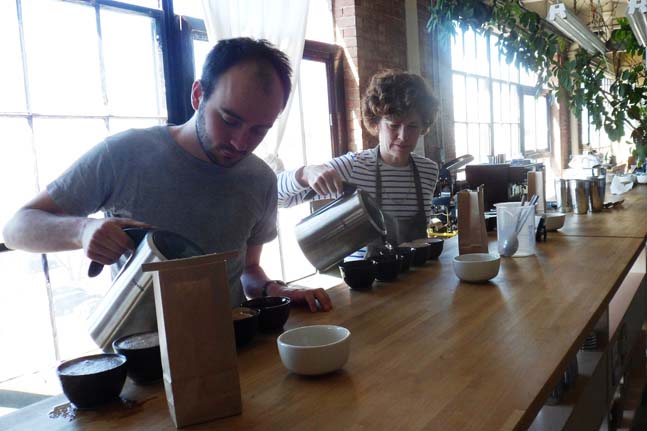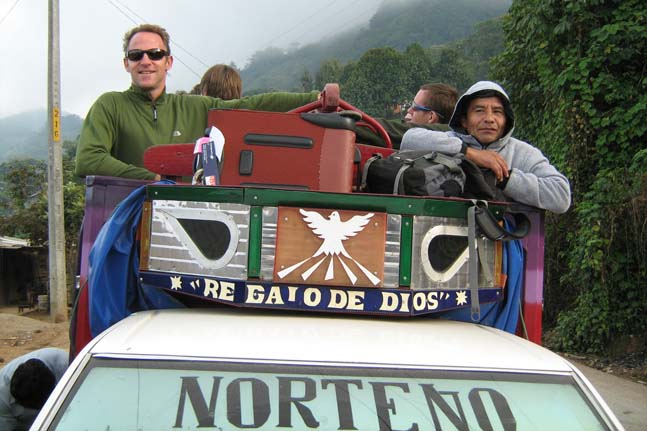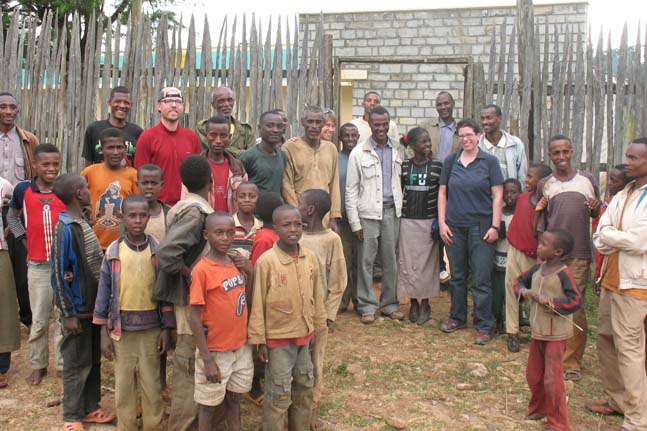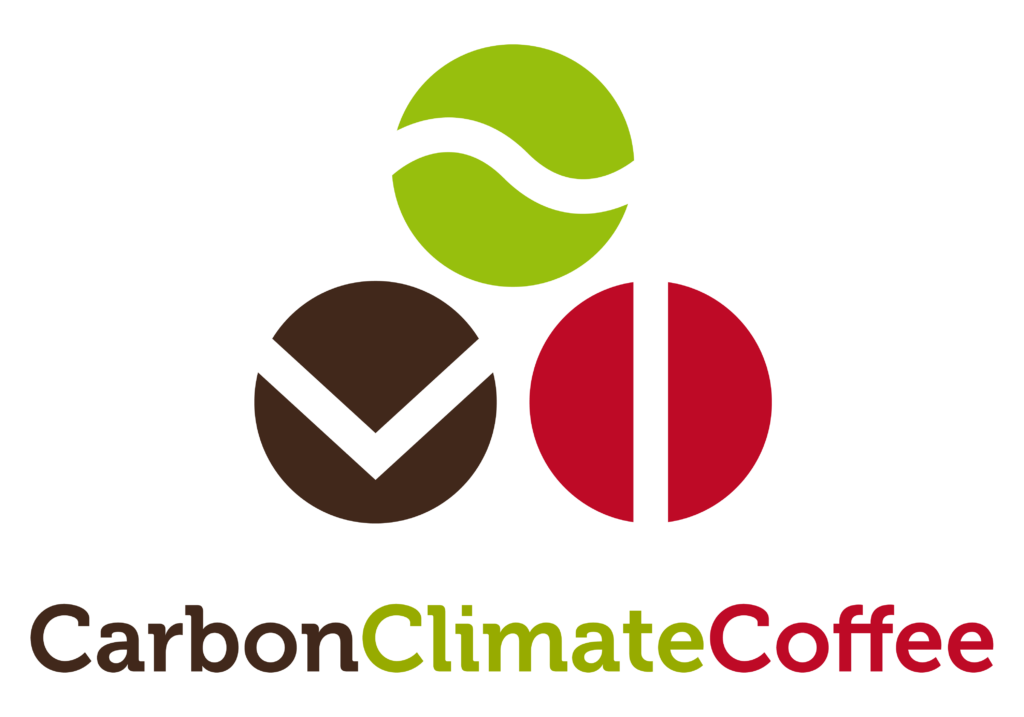
As Cooperative Coffees prepares for its 20th Anniversary Celebrations – we are thrilled and honoured to be acknowledged by the Specialty Coffee Association (SCA) Sustainability Awards, in the business-model category.
Since our founding, “sustainability” has been a cornerstone of our business philosophy and operating style. But even if the SCA named Cooperative Coffees specifically, we cannot overstate the crucial role our roaster-members have played, with their long track-record and vision of putting farmer livelihoods and fairness first! It’s been a fascinating and rewarding adventure to see this group of forward-thinking people, both roasters and producers, and their cooperative enterprises grow up together to build and develop this vision for win-win relationships, and to be able to demonstrate with daily actions how powerful trade can be — when designed fairly — as a tool for positive transformation and economic justice in farmer communities and beyond!
“Our roaster-members dig deep to treat producer organizations as equal business partners in the prices they pay, the projects they support, and the consistent harvest-after-harvest engagement they show our origin partners,” explains Coop Coffees General Manager Ed Canty. “This award is a testament to the Cooperative Coffees’ community and a great way to celebrate our 20th year anniversary.”
At the foundation of our enterprise is the vision to develop long-term and mutually beneficial partnerships through trade. This vision lives in our commitment to: build and nurture long-term relationships, import directly from small-scale organic and fair-trade coffee producer cooperatives; negotiate openly and directly with the coops, with full transparency and the intentions to offer best possible prices to the farmer, while assuring highest quality coffee from our producer partners; and, facilitate credit, via a network of trusted social lenders, with our contracts as collateral.
But we know that true sustainability is not achieved merely through a list of criteria and proclamations. Rather, it is constructed and tested over time via our history of defining moments.
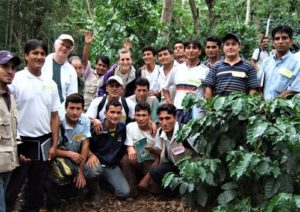 Since our founding, Cooperative Coffees roasters have been eager to travel to origin, to learn and to share ideas and expectations with our producer partners – in the healthiest spirit of full disclosure. We were always eager to support new, promising producer cooperatives and to work with them to break into the export market, as we accumulated a list of “first containers” exported from these farmer groups.
Since our founding, Cooperative Coffees roasters have been eager to travel to origin, to learn and to share ideas and expectations with our producer partners – in the healthiest spirit of full disclosure. We were always eager to support new, promising producer cooperatives and to work with them to break into the export market, as we accumulated a list of “first containers” exported from these farmer groups.
But in 2005, when the market finally jumped after an extended period of low prices we took this commitment to “work collaboratively across the supply chain” to a whole other level. In order to get everyone on the same page in that particularly turbulent era, we hosted our first-ever, regional producer / roaster exchange in Quetzaltenango, Guatemala – with an emphasis on mutually beneficial price risk management and on strengthening our relationships. Back in the day, it was unusual for roasters and producers to sit at the same table and openly share opinions and gain perspective from each other about terms of contract. But, in fact, this turned out to be an extremely efficient approach to consolidate our foundational values and to set a roadmap towards long-term sustainability.
The results, summarized in a document dubbed The Xela Accords, outlined our plan to increase pricing for producers – effective immediately, while also underscoring our needs for improved two-way communication and quality control with the exporting producer cooperatives. This style of open, direct and results-oriented dialog became a cornerstone for our approach to trade and producer relationships.
Beyond the immediate and tangible outcomes of that early producer/ roaster exchange, perhaps the most promising indicator for us as an importing cooperative, was that while we were focused in Guatemala on “doing the right thing” to improve quality of life in farmer communities, our warehouse in New Orleans was getting slammed by Hurricane Katrina. After hours, we were huddled around satellite feeds to track whether or not our entire inventory would be washed away in the storm. But despite the extremely high stakes, not once did roasters lean inward. That moment established a “can-do” sense of confidence in our ability to create win-win solutions, even in the most precarious of circumstances.
“Surviving the loss of our inventory to Hurricane Katrina in 2005, then hearing the unflinching opinions from our members and trading partners that we MUST figure out a way to regroup and get back into business, was clearly one of our defining moments… and an unmistakable signal for a bright future to come,” recalls Cooperative Coffees Founder Bill Harris. “Pooling the resources of small roasters to import directly from small-scale farmer cooperatives was a pretty novel idea 20 years ago. I’m so proud that we survived those early years, and have continued to thrive, grow and evolve up to the present – come what may!”
Cooperative Coffees roasters have demonstrated that same confidence time and time again. During the brunt of the Leaf Rust Crisis in Central America (2013 – 2016) roasters were quick to sign on to offering “Roya relief” funds to our most affected producers, which ended up becoming part of the Coffee Resiliency program in partnership with Root Capital and leveraged funds from US AID. As we began to see that leaf rust was, in fact, just a symptom — and that climate change was, and continues to be, the larger problem — we launched in 2017 the Carbon, Climate and Coffee Initiative with the intention of assuming responsibility to pay “the true cost” of our CO2 emissions. We built an additional US$.03/lb “carbon tax” on every sale of green coffee, with the funds being reinvested back into our supply chain to support learning and application of best, regenerative organic practices, reforestation and other carbon-sequestering propositions. Again in 2018, following broad consultation with producers and with roasters, we agreed to re-set our guaranteed minimum price for quality fair trade and organic coffees, up to US$2.20/lb (while maintaining all the mechanisms for higher prices based on market fluctuation, quality scores, and on other locally based influences and context).
 In striving for full transparency with our producer partners in regards to our quality expectations, we’ve hosted periodic cupping activities at our Quality Control Lab in Montreal. Bringing our roaster-members and producer-partner quality managers together is one way we can be sure to calibrate our palates, but also learn from each other about the successes and challenges on both sides to achieve the best possible quality.
In striving for full transparency with our producer partners in regards to our quality expectations, we’ve hosted periodic cupping activities at our Quality Control Lab in Montreal. Bringing our roaster-members and producer-partner quality managers together is one way we can be sure to calibrate our palates, but also learn from each other about the successes and challenges on both sides to achieve the best possible quality.
Over time, we’ve seen that this little bit of extra effort has translated directly into better prices for farmers, better quality for roasters, and fewer surprises and less risk for us, as the importer. And ultimately, this has resulted in a more stable, more enjoyable, and a more sustainable way of doing business!
From our founding members to our most recent additions into this collaborative enterprise, we’re grateful for this level of engagement and determination — both in their respective, local communities and internationally to strengthen our collective network North and South. Kudos all around for the SCA recognition of Cooperative Coffees as one of their 2020 Sustainability Award recipients!


